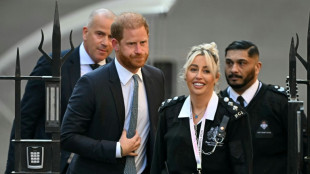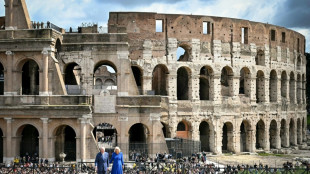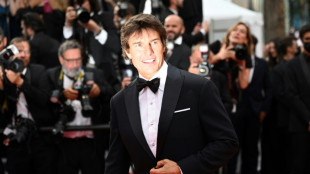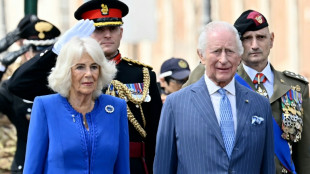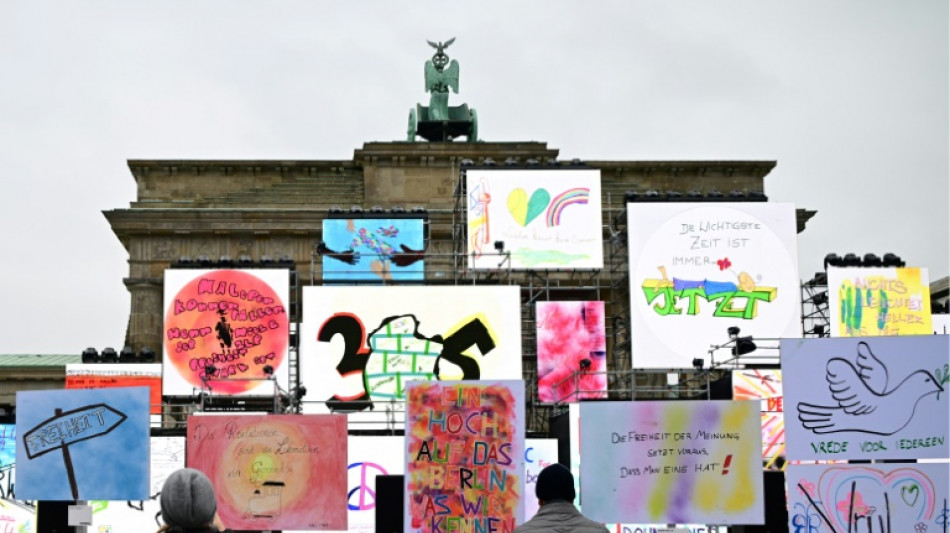

Germany marks 1989 Berlin Wall fall with 'Preserve Freedom' party
Germany marks 35 years since the Berlin Wall fell with festivities from Saturday under the theme "Preserve Freedom!" as Russia's war rages in Ukraine and many fear democracy is under attack.
Chancellor Olaf Scholz -- whose coalition dramatically collapsed this week -- said in a message to the nation that the liberal ideals of 1989 "are not something we can take for granted".
"A look at our history and at the world around us shows this," added Scholz, whose three-party ruling alliance imploded on the day Donald Trump was reelected, plunging Germany into political turmoil and towards new elections.
November 9, 1989 is celebrated as the day East Germany's dictatorship opened the borders to the West after months of peaceful mass protests, paving the way for German reunification and the collapse of Soviet communism.
One Berliner who remembers those momentous events, retiree Jutta Krueger, 75, said about the political crisis hitting just ahead of the anniversary weekend: "It's a shame that it's coinciding like this now."
"But we should still really celebrate the fall of the Wall," she said, hailing it as the moment East Germans could travel and "freedom had arrived throughout Germany."
President Frank-Walter Steinmeier will kick off events on Saturday at the Berlin Wall Memorial, honouring the at least 140 people killed trying to flee the Moscow-backed German Democratic Republic (GDR) during the Cold War.
In the evening, a "freedom party" with a music and light show will be held at Berlin's iconic Brandenburg Gate, on the former path of the concrete barrier that had cut the city in two since 1961.
On Sunday, the Russian protest punk band Pussy Riot will perform in front of the former headquarters of the Stasi, former East Germany's feared secret police.
Pro-democracy activists from around the world have been invited for the commemorations -- among them Belarusian opposition leader Svetlana Tikhanovskaya and Iranian dissident Masih Alinejad.
Talks, performances and a large-scale open-air art exhibition will also mark what culture minister Claudia Roth called "one of the most joyous moments in world history".
Replica placards from the 1989 protests will be on display along four kilometres of the Wall's route, past the historic Reichstag building and the famous Checkpoint Charlie.
Also among the art installations will be thousands of images created by citizens on the theme of "freedom", to drive home the enduring relevance of the historical event.
- 'Populism and division' -
Berlin's top cultural affairs official Joe Chialo said the theme was crucial "at a time when we are confronted by rising populism, disinformation and social division".
Axel Klausmeier, head of the Berlin Wall foundation, said the values of the 1989 protests "are the power-bank for the defence of our democracy, which today is being gnawed at from the left and the right".
Most East Germans are grateful the GDR regime ended but many also have unhappy memories of the perceived arrogance of West Germans, and resentment lingers about a remaining gap in incomes and pensions.
These sentiments have been cited to explain the strong support for the far-right Alternative for Germany (AfD) in eastern Germany, as well as for the Russia-friendly and anti-capitalist BSW.
Strong gains for both at three state elections in the east in September highlighted the enduring political divisions between eastern and western Germany over three decades since reunification.
While the troubled government led by Scholz's Social Democrats and the opposition CDU strongly supports Ukraine's fightback against Russia, the anti-establishment AfD and BSW oppose it.
The AfD, which rails against immigration, was embarrassed this week when several of its members were arrested as suspected members of a racist paramilitary group that had practiced urban warfare drills.
On the eve of the anniversary of the Berlin Wall's fall, government spokeswoman Christiane Hoffmann recalled that the weekend will also mark another, far darker chapter in German history.
During the Nazis' Kristallnacht or Night of Broken Glass pogrom of November 9-10, 1938, at least 90 Jews were murdered, countless properties destroyed and 1,400 synagogues torched in Germany and Austria.
Hoffmann said that "it is very important for our society to remember the victims... and learn the correct lessons from those events for our conduct today".
Y.Lewis--RTC
